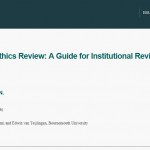Julie Robson (Department of Marketing) and John Toth (Department of Leadership, Strategy and Organisation) have recently published a new text on customer service and ethics.
The book focuses on the insurance loss adjuster market and is believed to be the first to provide the reader with an understanding of the importance of good customer service and sound business ethics in a loss adjusting context. Customer service topics include when customer service takes place, its benefits and different forms; how to measure and manage service quality, including response to complaints; and the impact of the Consumer Rights Act 2015 and the FCA’s Treating Customers Fairly. Business ethics topics includes the ethical theories, ethical decision making and ethical dilemmas; in addition, the text explores how ethical organisations are built in a diverse and global environment, including aspects such as corporate governance, corporate social responsibility and whistleblowing.
Loss adjusters investigate large or complicated claims for insurance companies and seek to resolve claims in a fair manner. Both customer service and ethics are recognised as important to this sector and the hallmark of a modern profession
Produced in association with the Chartered Insurance Loss Adjusters (CILA) and published by Witherby Publishing Group the text is recommended to students undertaking CILA professional examinations.
 New book review published by Dr. Pramod Regmi on research ethics
New book review published by Dr. Pramod Regmi on research ethics Dr Alison Cronin’s book on economic crime published
Dr Alison Cronin’s book on economic crime published










 Missing Persons Indicator Project Recruitment
Missing Persons Indicator Project Recruitment Celebrating our Research: Postgraduate Research Showcase 2026
Celebrating our Research: Postgraduate Research Showcase 2026 Nursing Research REF Impact in Nepal
Nursing Research REF Impact in Nepal Fourth INRC Symposium: From Clinical Applications to Neuro-Inspired Computation
Fourth INRC Symposium: From Clinical Applications to Neuro-Inspired Computation ESRC Festival of Social Science 2025 – Reflecting back and looking ahead to 2026
ESRC Festival of Social Science 2025 – Reflecting back and looking ahead to 2026 3C Event: Research Culture, Community & Cookies – Tuesday 13 January 10-11am
3C Event: Research Culture, Community & Cookies – Tuesday 13 January 10-11am ECR Funding Open Call: Research Culture & Community Grant – Application Deadline Friday 12 December
ECR Funding Open Call: Research Culture & Community Grant – Application Deadline Friday 12 December MSCA Postdoctoral Fellowships 2025 Call
MSCA Postdoctoral Fellowships 2025 Call ERC Advanced Grant 2025 Webinar
ERC Advanced Grant 2025 Webinar Horizon Europe Work Programme 2025 Published
Horizon Europe Work Programme 2025 Published Update on UKRO services
Update on UKRO services European research project exploring use of ‘virtual twins’ to better manage metabolic associated fatty liver disease
European research project exploring use of ‘virtual twins’ to better manage metabolic associated fatty liver disease